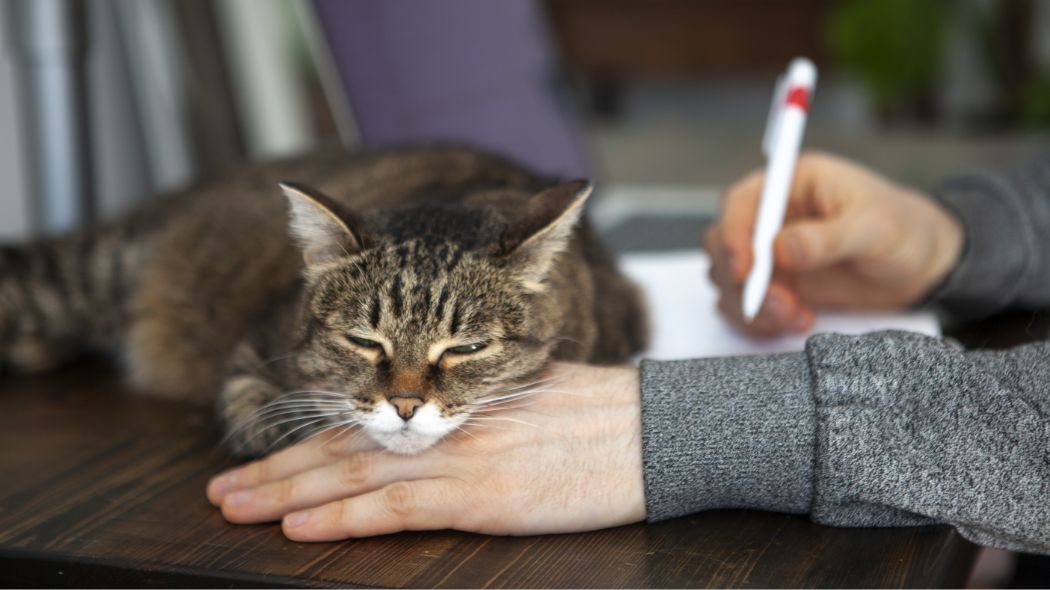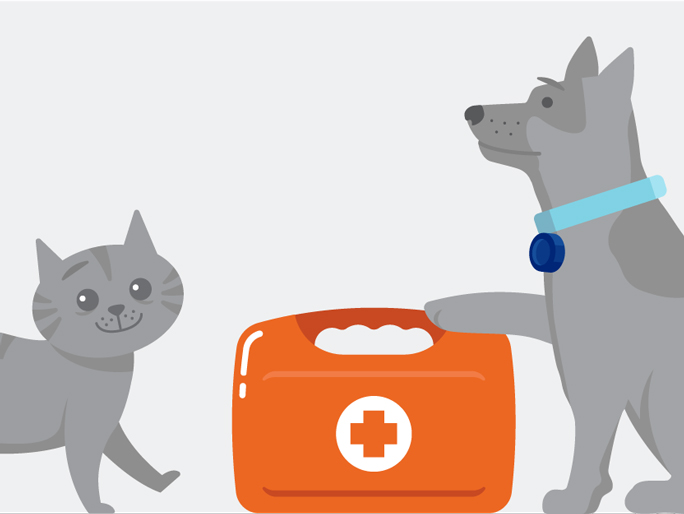flea-borne diseases to avoid
Fleas are invasive, irritating, and spread disease.
Preventing fleas with effective, year-round flea protection is much easier and more effective than treating flea-related disease, illness, and conditions.

Symptoms of flea allergies
- Itching and scratching
- Constant grooming
- Inflamed, red skin
- Fur loss

Signs of tapeworm
- Tapeworm segments in pet feces
- Itchy bottom, scooting
- Some pets show no signs

Symptoms of flea-related anemia
- Loss of appetite
- Pale gums
- Lethargy
- Weight loss

Risks for humans
- Cat scratch disease (Bartonella)
- Typhus
- Tapeworm
- Skin irritation
- Plague
Why treating fleas is so important
Not only is the presence of fleas a nuisance for your pet, your family, and your home, but fleas can also lead to diseases for your furry friend.

Flea allergies are truly awful
Fleas are the #1 cause of allergies in pets. Pets can develop a severe allergic reaction after even a single flea bite causes their immune system to react. Also known as flea allergy dermatitis, it causes extreme itchiness. Constant scratching may cause skin issues, which can then easily lead to skin infections.
The best form of treatment is year-round flea control — either topical or oral.
Fleas carry tapeworm larvae... yum
Fleas can go right down your pet’s gullet if your pet accidentally eats one. This is especially problematic for cats who clean themselves by licking. Any tapeworm larvae the flea carries can then settle in your pet’s intestines, where it sucks out nutrients and sheds segments into pet poo.
The easiest way to avoid that unpleasant experience for you and your pet? Start and keep them on year-round flea control meds.
Fleas can lead to blood loss and anemia
Get your pet on a vet-recommended flea control product to avoid the risk of flea-related anemia and blood loss.
Fleas can affect people too
While not super common, fleas can spread diseases to humans as well. These include tapeworm from accidentally swallowing an infected flea and flea-borne typhus from scratching an infected bite.
An Optimum Wellness Plan is a smart, affordable way to add flea control
Our Optimum Wellness Plans® are affordable yearlong packages of essential preventive care. They're designed for different needs, ages, and lifestyles, and each one includes routinely recommended vaccinations that help protect your furry friend against specific illnesses and disease.
Both our kitten and adult dog and cat packages have the option to add flea (and additional parasite) control. Contact your local Banfield for more info.

Need advice on flea control? Ping Pet Chat™!
Whether it's 3 a.m. or 3 p.m., connect with a real veterinary professional for immediate petcare advice. It's included in all Optimum Wellness Plans®!
Log in to start chatting
Save at the Banfield Shop
Our mission is to provide high-quality prescription meds for the pet you love. We believe in safe, effective petcare, so we thoroughly assess every item we carry. We offer discounts on eligible products with your pet’s Optimum Wellness Plan. And you can easily schedule deliveries with our super convenient AutoShip program.
Banfield can help prevent and treat fleas
 Regular wellness exams that include a full physical and fecal exam can help keep your furball happy and healthy. Kittens and puppies should start regular appointments when they’re about 6 weeks old, and then come in twice a year once they’re 5 months old. At your visits, we’ll check your little love from nose to tail, discuss age, needs, and lifestyle, and recommend trusted prevention medication to help fight off nasty critters that might feed on your pet.
Regular wellness exams that include a full physical and fecal exam can help keep your furball happy and healthy. Kittens and puppies should start regular appointments when they’re about 6 weeks old, and then come in twice a year once they’re 5 months old. At your visits, we’ll check your little love from nose to tail, discuss age, needs, and lifestyle, and recommend trusted prevention medication to help fight off nasty critters that might feed on your pet.
Whether you've got an active flea infestation or don't (yet!) but really, really want to avoid one, we're here with year-round flea protection for your pet. Talk with your Banfield veterinary team about the right flea prevention for your pet’s age, need, breed, and lifestyle.
 Podcast - Not Just Fluff
Podcast - Not Just Fluff



